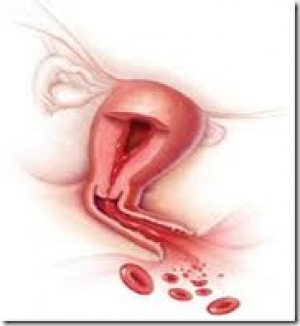The woman's menstrual cycle is determined by the stimulation of the hypothalamic- pituitary hormones ( GnRH , FSH, LH ) on the ovary and the production of ovarian hormones (estrogen and progesterone) that , in turn , stimulate the endometrium , ie the coating inside of the uterus . In response to these factors, the endometrium undergoes changes and the outcome of which ' represented by the menstrual cycle. The first menstruation ( menarche ) usually occurs around 11-12 years , successive cycles are repeated every 21-35 days over a period of 3-7 days.
In the case in which there is an alteration of this rhythm is spoken of menstrual irregularity , being able to identify the so-called " abnormal uterine bleeding " (AUB - abnormal uterine bleeding).
First, pregnancy should be ruled out , then is has to be identify what might be the cause of irregularity.
Faced with abnormal uterine bleeding (AUB ) it is important to think about and evaluate all possible causes: endometrial polyps , uterine fibroids , endometrial hyperplasia, endometrial cancer , adenomyosis , endometritis , bleeding disorders , medication , hormonal imbalance.
The diagnosis through imaging techniques such as ultrasound, sonohysterography , hysteroscopy or MRI in special cases is very important , but it' s equally important to perform blood tests and hormone assays (prolactin , thyroid hormones and androgens) . In patients with risk factors such as obesity, hypertension, anovulation , endometrial thickening and ' important to perform a biopsy to rule out endometrial cancer.
Haematological evaluation in the absence of organic pathology is foundamental. Should be excluded iatrogenic causes, namely related to drug that can cause bleeding and it can be done by collecting a detailed medical history of the patient.
Only when the causes have been excluded above , you can talk about abnormal uterine bleeding (AUB ) not classifiable and therefore not attributable to a defined disease.
READ ALL PATHOLOGIES



 Robotic surgery
Robotic surgery